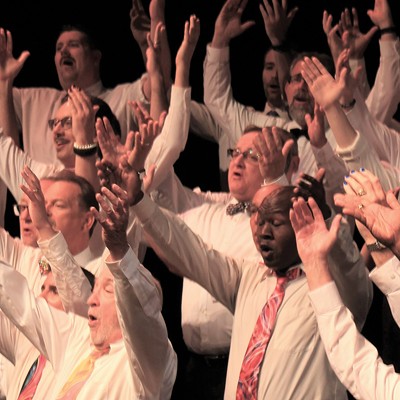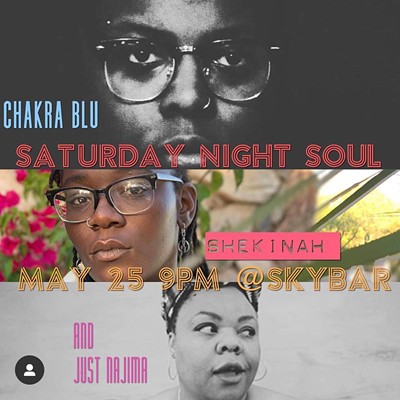Chatting with 23-year-old Laguna Beach-based indie-garage-punker Ty Segall on the phone is a laid-back, easygoing affair.
The same can be said about his approach to rock 'n' roll, which is also, let's just say, surfer-esque.
Segall doesn't intellectualize what he does; he lets his music—like his wave-riding (he's surfed since childhood)—speak for itself. For him, rock is action, not analysis, movement over examination. Listening to his latest release, you get the feeling that this young dude could take or leave fame. What he's committed to is the experience of rock and its earthly and divine qualities.
"They're both kind of religious, right?" he says, when asked about the surfing-music connection. "I think writing a song is more cerebral and a much-different process. But performing—or listening to—a good song and riding a killer wave are similar, because there's no process involved; you're just making it happen. You're doing it."
Segall's songs sound effortlessly composed, as if existing for years without ever being recorded. On Goodbye Bread, his first album for the prestigious Drag City label and his best to date, his fuzzed-out pop tunes are exquisitely crafted yet gnarly (imagine John Lennon fronting The Troggs), with every track sounding like a lost, loud, early-Beatles classic. From the acid-fried froth of "You Make the Sun Fry," with its dark lyrics—"Oh, won't you take me to the hill / Put me in your Coupe de Ville / Tell me that you love me still"—to the snarling, irony-rich rave-up "California Commercial," Bread bakes in your mind, a sweet loaf rising.
But if Bread boasts surf influences, they come from the Beach Boys, '60s garage-rock and early-'80s punk—not from watching Point Break or listening to Jan and Dean.
"All those California punk bands were surfers—(like) Black Flag and Greg Ginn. Surfing is tied into punk rock somehow," says Segall. "Think about the Trashmen's 'Surfin' Bird' and Dick Dale; it's all interconnected. There's not really any other sport that has its own rock subgenre. Unless you count Gary Glitter, who's the shit, by the way."
There's a lot of oldies music in what Segall does. Yet he gets away with covering GG Allin (the anti-rant rant "Don't Talk to Me"), a gesture that more or less still fits within the garage-rock category.
So what's an album or who's an artist that people might be surprised Segall draws inspiration from?
"I'm a huge Prince fan," he says, eager to make the case for the Purple Rain-maker's genius. "I absolutely love Madonna's first record. Depeche Mode's first album makes me happy, as does early Ted Nugent and Kiss' early records. Basically, I'm a total sucker for catchy '70s rock. Embarrassing to admit, yes, but I'll confess to you."
People may also not realize that the lo-fi Segall is a gritty cartoonist. Rather than send music critics a "one-sheet" press release explaining his musical accomplishments, he instead drew a series of comic strips "explaining" each song.
"I don't really draw, but I can fake it," he says. "That was to avoid going on and on about a new record—blah-blah-blah. Forget that; here are some drawings."
As the cartoons suggest, Bread dwells a bit on the negative side of things—the Golden State, relationships and couch purchases.
"I try to write more positive songs, but it's not me if it is cheesy," he reveals. "Writing a song is like working out, I think. It's maybe painful and strenuous, but it gets you somewhere; there are results. I'm not about to write a song about love straight-up just to 'stay positive' or whatever. ... Besides, dark stuff makes you think about things more."
Case in point: "California Commercial," in which Segall addresses everything that he's sick of about his native state—from the clichéd imagery to the clichéd stereotypes that people bring with them to the masses of dollar-grubbing drones.
"Fuck that shit," he says matter-of-factly. "Obsession with money and beauty are real problems here. That's the kind of song that makes me happy, because there's a point to what I'm singing about. The argument may not be the most well-executed, but it's nice to have something to say. I wrote party songs as a kid, and I'm done with that."
Segall's not above writing joke songs, however—hence the couch fight between a couple that is captured in "Comfortable Home (A True Story)," a narrative on the dismay of furniture-shopping that went over the head of one critic who, while praising everything else about Bread, took offense at what he interpreted to be a slice-of-real-life confession.
"That song is a joke," confirms Segall. "This magazine writer took it so literally by saying, 'We love the record, but we hate that one song; it's everything we can't stand about emo.' It's so great when someone takes a song like that way too literally."
Finally, even though he adores punk and garage-rock, does Segall see himself as a formalist or a deconstructionist?
"I have no idea, man," he sighs. "I try to do something different every time I sit down to write a song. I've never even considered myself a songwriter. I just try stuff out."
Spoken like a true surf-punk.









